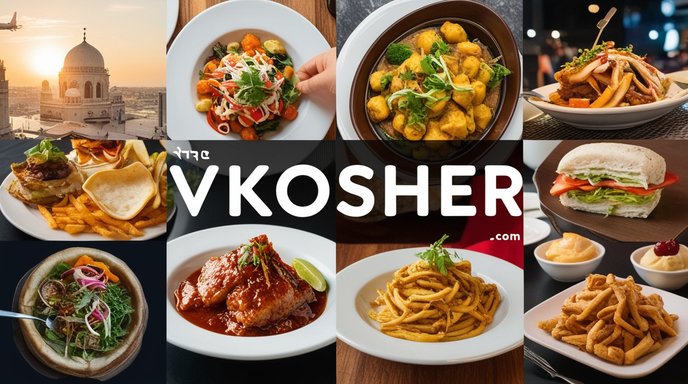Exploring the World of Kosher Krispy Kreme
Krispy Kreme, a brand synonymous with fresh, hot doughnuts, has long been a staple for those with a sweet tooth. With its iconic "Hot Now" sign and the unmistakable aroma of freshly glazed doughnuts, Krispy Kreme has captured the hearts of many. However, as the brand expands its global reach, it has also ventured into catering to specific dietary needs, including the Jewish community's adherence to kosher laws. The introduction of Kosher Krispy Kreme products marks an important development, allowing those who observe kashrut to enjoy the beloved doughnuts without compromising their dietary restrictions.
What Does Kosher Mean?
To fully appreciate the significance of Kosher Krispy Kreme, it's essential to understand what kosher entails. Kosher is a term used to describe food that complies with the strict dietary standards of traditional Jewish law. These laws, known as kashrut, cover a range of rules and regulations, including the types of animals that can be eaten, the way food is prepared, and how it is processed. For a product to be considered kosher, it must be produced under the supervision of a rabbi or a recognized kosher certification agency. This supervision ensures that all ingredients and processes adhere to kosher laws.
The Challenge of Making Krispy Kreme Kosher
Krispy Kreme's doughnuts are known for their distinct flavor and texture, qualities that are the result of a specific recipe and production process. Making these doughnuts kosher posed several challenges. The first hurdle was ensuring that all ingredients used in the doughnuts met kosher standards. This meant sourcing ingredients that were certified kosher, from the flour used in the dough to the oil used for frying. Additionally, Krispy Kreme had to ensure that their production lines were free from any non-kosher contamination. This required a thorough cleaning and kosherization of equipment before any kosher production could begin.
Certification and Supervision
For Krispy Kreme to offer kosher doughnuts, they had to partner with a reputable kosher certification agency. This agency's role was to oversee the entire production process, from the sourcing of ingredients to the packaging of the final product. The certification agency would ensure that all aspects of the production process adhered to kosher laws. This level of supervision is necessary because even a small deviation from kosher standards could render the entire batch non-kosher. The certification process is ongoing, with regular inspections and audits to maintain the kosher status of the products.
Kosher Krispy Kreme: A New Market
The introduction of Kosher Krispy Kreme doughnuts has opened up a new market for the brand. Jewish communities around the world can now enjoy Krispy Kreme doughnuts without worrying about violating their dietary laws. This expansion into the kosher market also reflects Krispy Kreme's commitment to inclusivity and catering to a diverse customer base. By offering kosher products, Krispy Kreme is acknowledging the importance of meeting the dietary needs of different cultural and religious groups.
Community Reception
The reception of Kosher Krispy Kreme has been overwhelmingly positive within the Jewish community. Many customers who previously could not indulge in Krispy Kreme doughnuts due to dietary restrictions are now able to enjoy them. This has led to a surge in popularity for Krispy Kreme stores that offer kosher options. In areas with large Jewish populations, such as New York and Los Angeles, kosher Krispy Kreme doughnuts have become a sought-after treat, especially during Jewish holidays and special occasions.
The Impact on the Kosher Food Industry
The entry of Krispy Kreme into the kosher food industry is significant. It demonstrates that even mainstream, non-kosher brands can successfully cater to kosher consumers if they are willing to adapt their processes and meet the necessary standards. This move by Krispy Kreme could potentially inspire other major food brands to explore the kosher market, which has been growing steadily in recent years. As more brands recognize the potential of this market, consumers could see an increase in the availability of kosher-certified products.
Kosher Krispy Kreme and Jewish Holidays
Jewish holidays are often times of feasting and celebration, with specific foods playing a central role in the festivities. Kosher Krispy Kreme doughnuts have become a popular choice for many Jewish families during these times. For example, during Hanukkah, a holiday traditionally associated with fried foods, kosher doughnuts are a common treat. The availability of Krispy Kreme's kosher doughnuts has added a modern twist to these traditional celebrations, allowing families to enjoy a beloved brand while still adhering to their dietary customs.
The Global Reach of Kosher Krispy Kreme
While the kosher market is most prominent in countries with large Jewish populations, the appeal of kosher products extends beyond the Jewish community. Many consumers who are not Jewish also seek out kosher-certified products for various reasons, including perceived quality, dietary restrictions, and ethical concerns. Krispy Kreme's decision to offer kosher products has therefore broadened their appeal to a wider audience. This global reach is particularly evident in countries like Israel, where kosher certification is a must for any food product, and in the United States, where kosher products are popular among health-conscious consumers.
Future Prospects for Kosher Krispy Kreme
The success of Kosher Krispy Kreme could pave the way for further expansion. As demand for kosher products continues to rise, Krispy Kreme may explore offering more of their products in kosher versions. This could include not only their classic glazed doughnuts but also other popular items such as their filled doughnuts, coffee, and even seasonal specials. Additionally, Krispy Kreme may consider expanding the availability of their kosher products to more locations, both in the United States and internationally.
Conclusion
Kosher Krispy Kreme represents more than just a new product offering; it signifies a commitment to inclusivity and cultural sensitivity. By making their iconic doughnuts available to those who observe kosher dietary laws, Krispy Kreme has demonstrated that it is possible to honor tradition while still enjoying modern conveniences. The success of this venture highlights the growing importance of catering to diverse dietary needs and the potential for other brands to follow suit. As Krispy Kreme continues to innovate and expand its product offerings, the availability of kosher options will likely become an integral part of their brand identity, further solidifying their place as a global leader in the doughnut industry.




